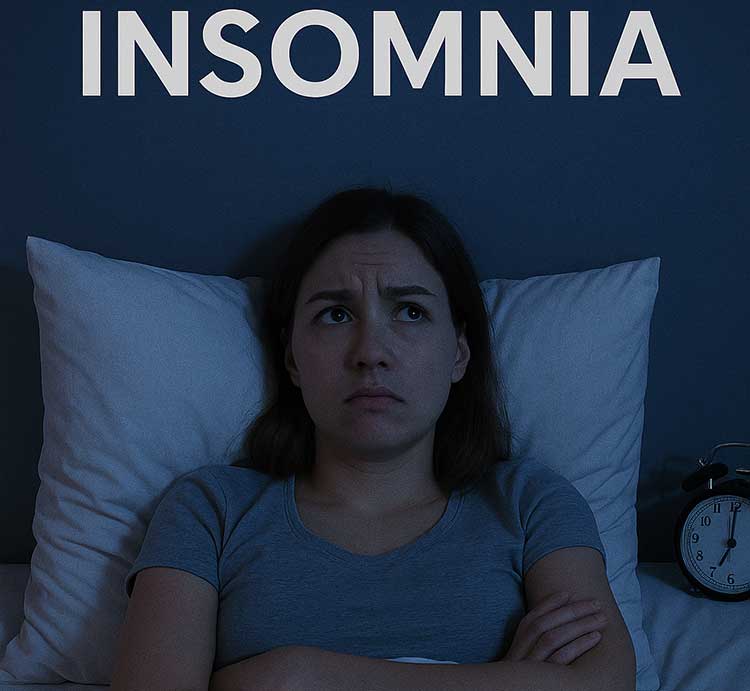Acupuncture & Herbal Medicine for Digestive Health: Healing the Center of Your Body
Dr. Tatyana's Health and Wellness Blog
Treating the whole person to restore optimal health. Check back often for up-to-date news and information about acupunture and Chinese medicine.
Most Recent Posts ...
Posted on: 1/19/2026
Posted on: 1/5/2026
Posted on: 12/22/2025
Posted on: 12/8/2025
Search All Blog Posts
Blog Post Archive Categories
- Top 5 Ways to Stay Healthy This Winter and Avoid the Flu
- Happy Thanksgiving: A Season of Gratitude, Healing & Reflection
- Salt Room Therapy: Your Sanctuary for Breathing, Healing & Deep Relaxation
- Acupuncture & Herbal Medicine for Digestive Health: Healing the Center of Your Body
- Acupuncture for Pain Relief: A Natural, Effective Solution
- Acupuncture for Insomnia & Anxiety: Restoring the Calm Within
- Chronic Fatigue and Chronic Inflammation: A Holistic Look Through Western and Eastern
- The Hidden Dangers of Overusing Supplements: Are You Taking More Than You Should?
- The Importance of Exercise and How to Stay Motivated for a Healthier You
Acupuncture & Herbal Medicine for Digestive Health: Healing the Center of Your Body

Digestive health is the foundation of overall wellness. In Traditional Chinese Medicine (TCM), the digestive system is considered the body’s energetic center — the place where we create vitality, nourishment, strength, and emotional balance. When the digestive system is functioning well, we feel energized, grounded, clear-minded, and emotionally stable. But when it becomes imbalanced, it can affect every part of our life.
Many people live with chronic digestive symptoms without realizing how deeply they impact their energy, sleep, mood, hormones, and immune system. Bloating, constipation, diarrhea, indigestion, acid reflux, low appetite, or food sensitivities are not “normal” — they’re signals from the body that the digestive system needs support. Acupuncture and herbal medicine offer gentle yet powerful tools to restore harmony to the gut and help the entire body function more smoothly.
In TCM, digestion is governed primarily by the Spleen and Stomach, which work together to transform food into energy (Qi) and deliver nourishment to every organ. When these systems become weakened by stress, poor diet, cold foods, overthinking, irregular meals, or emotional strain, their ability to process food decreases. This can lead to symptoms like bloating after meals, fatigue, heaviness in the body, loose stools, brain fog, or sugar cravings. Acupuncture works by strengthening the digestive organs, improving motility, reducing inflammation, and regulating the nervous system, which plays a major role in gut function.
One of the reasons acupuncture is so effective for digestive health is its ability to calm the sympathetic nervous system — the fight-or-flight mode that shuts down digestion. Many patients unknowingly live in a state of chronic stress. The stomach tightens, the intestines slow down, and the body struggles to break down food. With acupuncture, the body shifts into parasympathetic mode, also known as “rest and digest.” In this state, the digestive organs receive more blood flow, digestive enzymes increase, and the body naturally begins to heal.
Herbal medicine adds another layer of support by addressing the specific imbalances causing digestive problems. For example, warming herbs like ginger and dried orange peel support sluggish digestion and bloating, while bitter herbs can regulate acid reflux and help food move downward properly. For people with IBS, alternating constipation and diarrhea, or stress-related gut issues, customized herbal formulas work alongside acupuncture to soothe inflammation, support the microbiome, regulate the bowels, and calm the nervous system. Each formula is tailored to the individual's presentation — because in TCM, there is no one-size-fits-all approach.
Digestion is deeply connected to emotions. Worry, overthinking, and stress are known in TCM to weaken the Spleen, while frustration and unprocessed anger can stagnate the Liver, creating symptoms like bloating, acid reflux, or nausea. Acupuncture harmonizes these systems so emotions don’t disrupt digestion as strongly. Patients often report that as their gut improves, their mood improves as well — a reminder of the powerful gut-brain connection validated by both Eastern and Western medicine.
Healing the digestive system is not simply about treating symptoms — it’s about restoring the root of your body’s vitality. When your gut functions well, everything improves: energy levels rise, sleep becomes deeper, inflammation decreases, and hormones naturally balance. This is why so many chronic conditions improve when digestion is treated. TCM has understood this for thousands of years: a healthy gut is the foundation of a healthy life.
If you’ve been struggling with digestive issues — whether it’s IBS, bloating, reflux, constipation, chronic stress digestion, or unexplained discomfort — acupuncture and herbal medicine offer a gentle and effective path back to balance. Your digestive system wants to heal; it simply needs the right support.
If you’re ready to strengthen your digestive health and feel like yourself again, I’m here to help.
Schedule an appointment at Family Acupuncture & Health to begin your healing journey.
Acupuncture for Pain Relief: A Natural, Effective Solution

Pain affects every part of life — how we move, sleep, work, and even how we think. Whether it’s chronic back pain that has lingered for years, tension headaches that come and go, or sudden injuries that disrupt daily routine, pain can feel overwhelming. Many people try medications, physical therapy, or even consider surgery before discovering that one of the most effective treatments has been used for thousands of years: acupuncture. This natural therapy provides pain relief without drugs, without side effects, and without shutting down your nervous system. Instead, acupuncture works with the body’s inherent intelligence to restore balance and ease.
Pain in Traditional Chinese Medicine (TCM) is often described as a blockage or imbalance of Qi and blood. When these vital substances cannot flow freely — due to injury, inflammation, emotional stress, or structural tension — discomfort arises. Acupuncture restores healthy movement in these pathways, allowing the body to release tension, reduce inflammation, and begin repairing damaged tissues. Western medicine has confirmed this through modern research, showing that acupuncture increases circulation, relaxes tight muscles, regulates inflammatory chemicals, and triggers the release of endorphins — your body’s natural painkillers.
One of the most powerful aspects of acupuncture is its ability to treat the root cause of pain, not just the surface symptoms. For example, sciatica may present as leg pain, but the true issue can be a tight piriformis muscle, lumbar disc irritation, or inflammation in the nerve pathway. Shoulder pain may be caused by rotator cuff strain, poor posture, or neck tension. Migraines may be linked to hormonal imbalance, stress, liver stagnation, or digestive disruption. Acupuncture addresses both the symptom and its origin, creating lasting, meaningful relief.
Patients often seek acupuncture after exhausting other options — but many wish they had tried it sooner. It is highly effective for a wide range of conditions: back pain, neck pain, sciatica, tendonitis, carpal tunnel syndrome, knee pain, TMJ dysfunction, migraines, fibromyalgia, and post-injury recovery. Acupuncture also works beautifully for nerve-related pain such as neuropathy and post-injury sensitivity. Unlike medications that may reduce pain temporarily while masking the issue, acupuncture encourages the body to heal itself.
Another unique benefit of acupuncture is its impact on the nervous system. Pain intensifies when the body is stuck in fight-or-flight mode. Stress tightens muscles, increases inflammation, and lowers pain tolerance. During an acupuncture treatment, the nervous system shifts into parasympathetic mode — the state of rest, digestion, and repair. Blood pressure lowers, muscles relax, and the mind quiets. Many patients describe a sensation of “the body finally letting go.” This state accelerates healing and reduces the emotional tension that often accompanies chronic pain.
Acupuncture can also be combined with other holistic therapies for even greater benefit. Techniques such as cupping, cold laser therapy, gua sha, point injection therapy, and herbal medicine complement acupuncture and support faster recovery. Herbal formulas can reduce inflammation, improve circulation, and nourish weakened tissues. Cold laser therapy enhances cell repair and is particularly helpful for tendon injuries, neuropathy, and chronic inflammation. The combination of these modalities creates a comprehensive, natural approach to pain management.
Patients frequently report improvements not only in their pain level but in their overall well-being. Sleep improves. Stress decreases. Digestion becomes stronger. Energy rises. This holistic shift is part of why acupuncture is so effective for chronic pain — it treats the person, not just the symptom. When the entire system is balanced, pain naturally reduces and resilience increases.
If you’ve been living with pain — whether it’s a new injury or a condition you’ve struggled with for years — acupuncture offers a gentle, safe, and powerful solution. Your body is designed to heal, and acupuncture simply opens the pathways for that healing to happen. You deserve a life that feels comfortable, energized, and free.
If you're ready to reduce pain naturally and regain the quality of life you deserve, I’m here to support you.
Acupuncture for Insomnia & Anxiety: Restoring the Calm Within

Sleep is the foundation of physical, emotional, and mental health — yet for so many people, restful sleep feels out of reach. Insomnia can show up in many forms: difficulty falling asleep, waking during the night, early morning awakening, or restless, light sleep that leaves you tired the next day. Anxiety often travels alongside it, creating a cycle where worry keeps you awake, and lack of sleep heightens stress, irritability, and physical tension. This cycle can feel endless, but Traditional Chinese Medicine (TCM) offers a gentle, powerful solution that helps the mind and body reconnect with their natural rhythms.
Acupuncture treats insomnia and anxiety by regulating the nervous system and balancing the flow of Qi — the body’s vital energy. When Qi becomes stuck or imbalanced due to stress, overthinking, emotional strain, or hormonal changes, symptoms like restlessness, racing thoughts, heart palpitations, tight chest, or digestive upset often appear. By restoring harmony to the body’s internal pathways, acupuncture helps shift the system from “fight-or-flight” into “rest-and-digest,” allowing the mind to slow down and the body to release accumulated tension.
From a TCM perspective, insomnia can arise from several underlying patterns. Heart Yin deficiency may cause anxiety, night sweats, and difficulty staying asleep. Liver Qi stagnation can lead to racing thoughts, irritability, and restless nights. Spleen Qi deficiency often manifests as worry, overthinking, and fatigue. Kidney imbalances may create fear, early waking, or chronic anxiety. Rather than providing a one-size-fits-all treatment, acupuncture identifies your specific pattern and helps correct the imbalance, leading to deeper, more restorative sleep.
Modern research supports these traditional principles. Acupuncture has been shown to increase the production of serotonin and melatonin — neurotransmitters crucial for sleep regulation. It also lowers cortisol, the body’s primary stress hormone, which is often elevated in people with chronic anxiety or insomnia. As cortisol levels normalize, the mind becomes quieter, the body relaxes, and sleep naturally improves. Many patients report feeling calmer after the very first session, describing a peaceful “reset” that carries into their daily life.
Another important aspect of insomnia and anxiety is the emotional burden they create. Sleepless nights often lead to frustration, fear of bedtime, and the sense that the mind has lost control. Acupuncture helps break this emotional pattern by providing a safe, quiet space for the nervous system to unwind. During treatment, the brain enters a deep, meditative state, similar to what occurs during mindfulness practices or restorative yoga. This shift helps re-train the brain to feel safe in stillness, making it easier to fall asleep and stay asleep.
Acupuncture can also be combined with herbal medicine for even stronger results. Herbs like Suan Zao Ren, He Huan Pi, or Zhi Zi help calm the mind, nourish the Heart, reduce nighttime heat, and support emotional balance. When tailored specifically to your pattern, herbal formulas work beautifully alongside acupuncture to improve sleep quality, reduce anxiety, and strengthen your overall energy. Lifestyle recommendations — such as evening rituals, breathing exercises, and dietary support — further enhance the healing process.
Over time, patients often notice more than just better sleep. They feel clearer during the day, more stable emotionally, and more resilient in handling stress. Digestion improves, hormonal balance stabilizes, and mood becomes lighter. These changes reflect the holistic nature of acupuncture: it does not merely suppress symptoms but strengthens the entire system so peace becomes the natural state, not the exception.
If you’ve been struggling with insomnia, anxiety, or restless nights, know that your body has not forgotten how to rest — it simply needs guidance. Acupuncture offers a safe, gentle pathway back to deep sleep, calm energy, and emotional balance. You deserve to feel peaceful within yourself.
If you're ready to sleep better and feel calmer, I’m here to support your healing. Schedule your acupuncture session at Family Acupuncture & Health.

